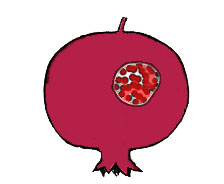Guest Post by Marie Hansen
November 23rd will mark the third session of KHORAI: a scientific & scholarly reading & discussion group about women’s maternal & reproductive mental health.
I decided to take this opportunity to write a blog post to let you all about what we have been doing at KHORAI and how you can start your own KHORAI group at your local library (or other public space).
What is KHORAI?
KHORAI is a new initiative started by the Maternal Psychology Laboratory at Teachers College, Columbia University in partnership with the New York Public Library. The idea is to translate scientific and scholarly articles about women’s health & psychology to the general public. It works pretty much like your typical book discussion group; only instead of books we read & discuss journal articles. Each session is led by a member of the Maternal Psychology Laboratory using a journal article of their choice. The purpose of the groups are to take our knowledge of women’s health research out from behind university walls and into the greater community as well as foster conversations about topics that might not be otherwise talked about — including menstruation & gender. Our goal is body literacy and, importantly, since most of us come from a clinical psychology background, we are interested in promoting psychological literacy and exploring the ways in which women’s experiences of their bodies and reproductive life impact their inner life.
So far we have discussed:
It’s not all bad: Women’s construction and lived experience of positive premenstrual change by Marlee King and Jane Ussher
The Pervasiveness and Persistence of the Feminine Beauty Ideal in Children’s Fairy Tales by Lori Baker-Sperry and Liz Grauerholz
Our next article is:
Motherhood as Opportunity to Learn Spiritual Values: Experiences and Insights of New Mothers by Aurélie Athan and Lisa Miller
The groups so far have been a really wonderful experience. People from all walks of life have attended, from fashion designers to schools teachers to new mothers! Tasha Muresan, the lab member who ran the session on fairy tales, wrote up a great little piece about our last discussion.
Why the public library?
Public libraries have long been known as “the People’s University”—their purpose is to enhance public education, literacy, and community—basically, the perfect place to introduce women’s reproductive & maternal mental health! As free & open public spaces, they make for great locations to host discussion groups. Plus, most libraries have access to databases where you can retrieve the scholarly articles to use for discussions.
How do I start a KHORAI group?
Starting a KHORAI group is really simple. Just contact your local librarian and ask him/her if they would be interested in hosting a KHORAI group. If you live close to a university, you can ask other students or professors in psychology, sociology, or women’s studies departments if they would be interested in leading a group discussion (or if you are feeling brave, try leading one yourself). You canalso ask women’s health professionals such as nurses, midwives, or doulas. Plan a day for your group, make a flyer, & put it up in coffee shops, hair salons, & bookstores—any place you think people will find them. Give out the journal article through e-mail (or hard-copy at the library) at least a week in advance to give people time to read it.
If you are running the discussion yourself, take notes while you read the article and highlight the parts that you find interesting. What did you think of the methodology used? What ideas or thoughts did you have while reading the article? Do you see any limitations to the study? Why is the research important for women’s health?
The day of the discussion, relax! We have found that people are excited to talk about women’s reproductive health & psychology, and it generally feels like having a great conversation with friends. If there seems to be a lull in the conversation, you can always bring up something that you noted while you were reading the article to get things going again. We also discovered thatcapping the audience to 10-13 people has been really helpful to keep thingscoherent & flowing.
Also, be sure to e-mail us (writekhorai@gmail.com) so we can list your group on our website & hear about what articles you are discussing. We’d love to build a network of community women’s health discussion groups!
And if you are in New York, come join our third session.


